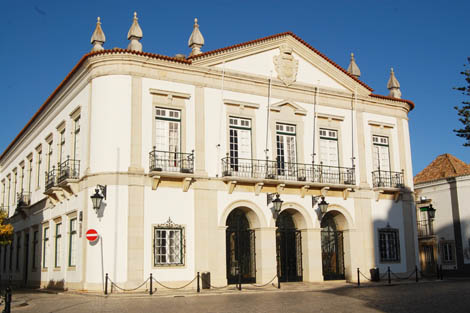 The first Portuguese municipal network for cooperation and development is launched on Friday with the participation of 14 municipalities, an initiative that aims to improve the effectiveness of the work of municipalities in helping poor countries.
The first Portuguese municipal network for cooperation and development is launched on Friday with the participation of 14 municipalities, an initiative that aims to improve the effectiveness of the work of municipalities in helping poor countries.
Amateur, Arraiolos, Faro, Grândola, Loures, Maia, Marinha Grande, Miranda do Corvo, Moita, Odivelas, Oeiras, Palmela, Seixal and Setúbal are the pioneer municipalities of this network, promoted by the Marquês de Valle Flôr Institute (IMVF) with the support of the National Association of Municipalities Portuguese (ANMP).
The project, which has been worked on for more than two years with the chambers and in partnership with Spanish and German municipalities, "will culminate in the formal creation of the inter-municipal development cooperation network", as explained to the Lusa Hermínia Ribeiro agency, of the IMVF.
For the official, the creation of the network will enable the municipalities to work together, “enhancing what each one has to offer”, and contributing “in a more effective way to combat poverty and improve the living conditions of the populations”.
Simultaneously, it will allow “to put the populations of developing countries in contact with the Portuguese population” and “create business opportunities for companies” in these municipalities.
The project, which has an estimated cost of over 600 euros, is 75 percent financed by the European Commission, with the remaining amount being borne by Portuguese Cooperation.
Hermínia Ribeiro recalls that almost all of the 305 Portuguese municipalities have twinning protocols with municipalities from at least one developing country, particularly in Portuguese-speaking countries, adding that the objective is to attract more municipalities to the network.
The responsible highlights the practical advantages of working in a network, stressing that it generates greater possibilities for project approval and financing.
“In a network, the potential for project approval and access to [European Union] financing lines is much greater, not only in a network between municipalities, but with other development actors, whether non-governmental organizations (NGOs) or universities,” he said, recalling that the crisis caused a reduction in the funds allocated by local authorities to help poor countries.
“There may be a reduction in the priority of investment, but there is still great concern […] to try to meet the Millennium Development Goals, which the municipalities subscribed to. The population continues to be concerned about supporting developing countries,” he added.
The launching of the first Intermunicipal Network for Development Cooperation takes place on Friday, in the Paços do Concelho de Odivelas, in a ceremony that will be attended by the Secretary of State for Foreign Affairs and Cooperation, Luís Brites Pereira, as well as representatives the National Association of Portuguese Municipalities and the European Commission in Portugal.


















Comments